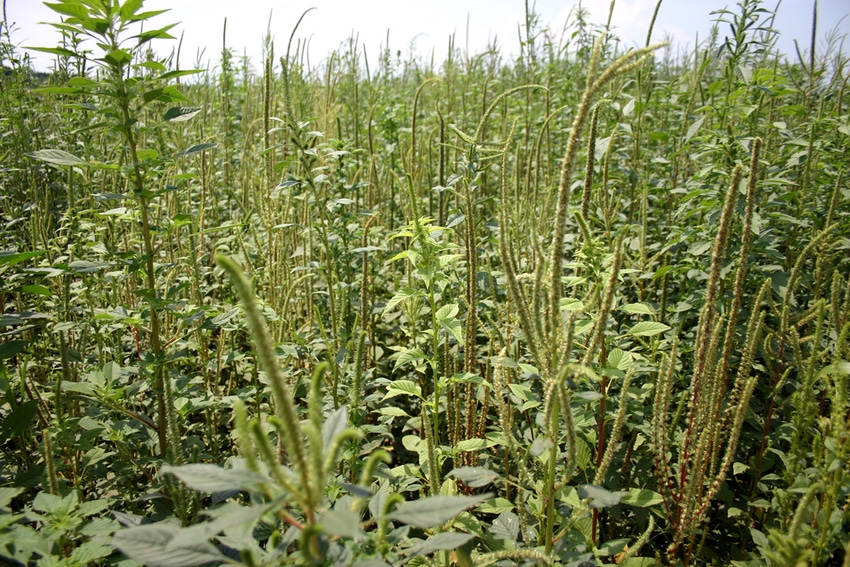
Resistant weeds changing the way we farm 111940
In a recent survey of a small number of Mid-South, Southeast and Texas farmers, seven out of 10 reported that they had one or more resistant weeds on their farms.Nine out 10 farmers surveyed said they hand hoed resistant weeds.Most rated weed control practices they adopted to combat resistant weeds as effective, although it has driven up their costs.

A survey by the Cotton Incorporated Economics and Conservation Tillage Workgroup indicates that cotton producers are changing the way they farm in response to resistant weeds. Producers say these changes, while effective, are driving their weed control costs higher.
Glyphosate-resistant pigweed was the most frequently-cited problem by farmers, according to the survey, conducted by researchers from the University of Tennessee, University of Arkansas, Mississippi State University, Texas A&M University and Louisiana State University. The results of the survey were presented at the 2013 Beltwide Cotton Conferences, in San Antonio, by James Larson, economics professor at the University of Tennessee. Cotton Incorporated funded the study.
The survey, mailed to 2,500 cotton producers in February and March of 2012, asked farmers to assess the extent of weed resistance in cotton, changes they are making in conservation tillage and weed control, and in other production practices. A weighted sampling procedure was used within counties based on distance from weed resistance epicenters, number of farmers and acres of cotton within the county. Three primary epicenter points of weed resistance were in west Tennessee, North Carolina, and Georgia.
The researchers received 309 usable surveys. “It’s a small sample so we have to be careful about inferences that we make, but we think it’s very interesting information about how farmers are responding to weed resistance,” Larson said.
Seven out of 10 farmers indicated they had one or more resistant weeds. About six out of 10 indicated problems with resistant pigweed and 25 percent reported problems with resistant horseweed. Glyphosate-resistant pigweed was first documented in 2005, and the survey indicated that new occurrences peaked around 2008-09, noted Larson. New occurrences of glyphosate-resistant horseweed also peaked in 2008-09, around epicenters in west Tennessee and North Carolina, with a few instances in west Texas.
Farmers said consultants helped the most in identification of resistant weeds, followed by chemical or fertilizer dealers and Extension. Farmers said chemical and fertilizer dealers provided the most help in developing a plan for managing resistance, followed by Extension and field scouts.
Nine out of 10 farmers with resistant weeds reported using hand hoeing as a management practice. Other tools for managing resistance were cultural practices, such as crop rotation and cover crop, and to a lesser extent chemical or mechanical tillage.
“One of the biggest concerns of this workgroup is the potential impact that weed resistance might have on use of no-till and conservation tillage practices,” Larson said. “There is a need to document the extent of the problem, the potential economic impacts and what farmers are doing to combat it.”
Farmers in the survey says the biggest change in tillage practices before and after weed resistance was a reduction in the use of no till practices. The survey also indicated that after the onset of weed resistance, they tended to reduce their use of Roundup Ready cotton, while increasing use of WideStrike and LibertyLink cotton.
About 63 percent of farmers surveyed rated their resistant weed management practices as being effective to very effective. “On average, all farmers thought that they were being very successful on average with their practices,” Larson said.
Forty-eight percent of farmers reported that prior to weed resistance, they had weed control costs of $50 or more per acre. After weed resistance on their farm, 92 percent of farmers reported weed control cost had exceeded $50 per acre.
About the Author(s)
You May Also Like





